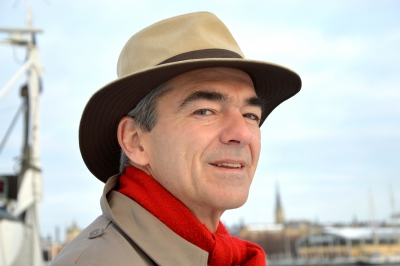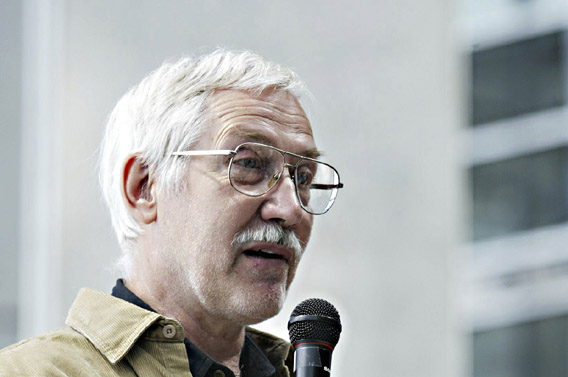Amanda Aizpuriete is a mystical poet. In conversation this past fall, she told me she writes “about places I haven’t been, lives I haven’t lived.” We met in Jurmala, a place whose name literally means “seashore” and which comprises a string of resort towns halfway between Riga and Kaugari, where Aizpuriete has lived all her life. Her mother was entitled to military housing there. Her children went to the same school she attended as a child. “I have lived through the most dramatic changes,” Aizpuriete says, who was born in 1956 and has published collections of poetry while Latvia was under Soviet control to the present.
“There was only one publisher at the start, and an ‘inside’ review was of the greatest importance.” She explained this meant a critique and recommendation of a prospective book by a well-known writer.
Aizpuriete studied philology and philosophy at the Latvian State University from 1974-1979, as well as at the M. Gorky Literature Institute’s Translation Seminary in Moscow from 1980-1984. Through this time, she met translators from Ukraine and Azerbaijan and discovered what she describes as “great writings,” just opening up to publishing in the mid-eighties when Gorbachev entered power. First to translate this work into Latvian, she interviewed Josef Brodsky a couple of years after he’d won the Nobel Prize, and translated his play Demokratija into Latvian with his collaboration. “This was a beautiful episode, done through relationships,” Aizpuriete says. As poetry editor for the magazine Avots (Wellspring) in the mid-eighties, Aizpuriete was able to see the debut of banned Latvians, those it was not possible to publish earlier. READ MORE…



